
Monschau: The Timeless Jewel of the Eifel Region
Nestled in the heart of Germany's Eifel Region, Monschau is a picturesque town that seems to have been plucked straight out of a fairy tale. Known for its well-preserved medieval architecture, winding cobblestone streets, and charming half-timbered houses, Monschau offers a captivating glimpse into the past. The town's beautiful setting along the Rur River makes it an ideal spot for leisurely strolls and scenic views. Monschau is also home to an array of cultural and historical attractions. The Monschau Castle, dating back to the 13th century, provides stunning panoramic views of the town and surrounding countryside. The Red House Museum offers visitors a fascinating insight into the local history and the life of a wealthy cloth-making family. Throughout the year, the town hosts numerous festivals and markets, including the famous Monschau Christmas Market, which transforms the town into a winter wonderland. In addition to its historical charm, Monschau is a gateway to outdoor adventures. The surrounding Eifel National Park features lush forests, rolling hills, and a network of hiking and biking trails that cater to all levels of fitness. Whether you're exploring the scenic landscapes or delving into the town's rich history, Monschau promises an unforgettable experience for every traveler.
Local tips in Monschau
- Visit Monschau during the Christmas season to experience the magical Christmas Market.
- Take a guided tour of the Monschau Castle for the best historical insights and panoramic views.
- Wear comfortable shoes; the cobblestone streets can be uneven and require good footing.
- Explore the Eifel National Park for hiking and biking trails suitable for all levels.
- Try the local Monschau mustard, a regional specialty available in various flavors.
- Check the local event calendar for festivals and markets to enhance your visit.
Monschau: The Timeless Jewel of the Eifel Region
Nestled in the heart of Germany's Eifel Region, Monschau is a picturesque town that seems to have been plucked straight out of a fairy tale. Known for its well-preserved medieval architecture, winding cobblestone streets, and charming half-timbered houses, Monschau offers a captivating glimpse into the past. The town's beautiful setting along the Rur River makes it an ideal spot for leisurely strolls and scenic views. Monschau is also home to an array of cultural and historical attractions. The Monschau Castle, dating back to the 13th century, provides stunning panoramic views of the town and surrounding countryside. The Red House Museum offers visitors a fascinating insight into the local history and the life of a wealthy cloth-making family. Throughout the year, the town hosts numerous festivals and markets, including the famous Monschau Christmas Market, which transforms the town into a winter wonderland. In addition to its historical charm, Monschau is a gateway to outdoor adventures. The surrounding Eifel National Park features lush forests, rolling hills, and a network of hiking and biking trails that cater to all levels of fitness. Whether you're exploring the scenic landscapes or delving into the town's rich history, Monschau promises an unforgettable experience for every traveler.
When is the best time to go to Monschau?
Iconic landmarks you can’t miss
Monschau historic old town
Discover Monschau's timeless charm: Explore cobblestone streets, half-timbered houses, and a rich textile history in this perfectly preserved medieval town nestled in the heart of the Eifel.
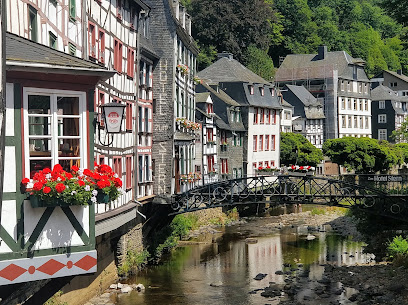
Erlebnismuseum Lernort Natur
Discover over 1,000 wildlife exhibits at Monschau's Erlebnismuseum Lernort Natur, an interactive learning center for all ages, fostering appreciation for nature and conservation.
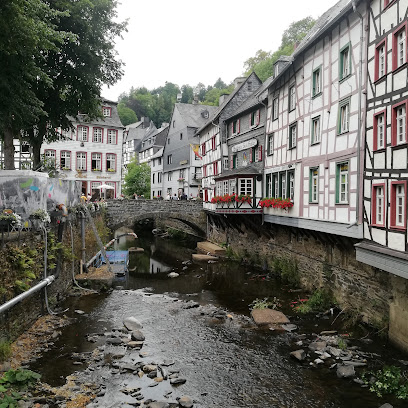
Perlenbach-Fuhrtsbachtal
Discover the serene beauty of Perlenbach-Fuhrtsbachtal near Monschau: Hike through lush landscapes, witness the spring daffodil bloom, and reconnect with nature in this protected Eifel haven.
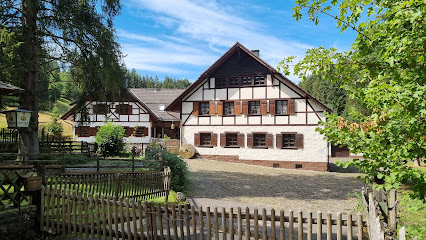
Foundation Scheibler Museum Rotes Haus Monschau
Step back in time at Monschau's Rotes Haus Museum, a perfectly preserved 18th-century residence and business showcasing the life of a wealthy cloth-making family.
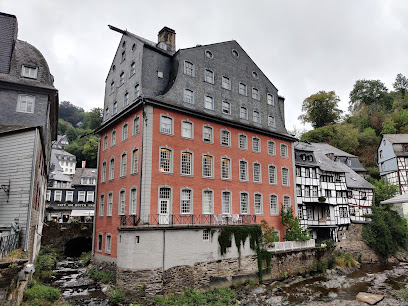
Alte Herrlichkeit
Experience authentic German cuisine in a historic setting at Alte Herrlichkeit, a Monschau tradition for over a century, offering regional specialties and warm hospitality.
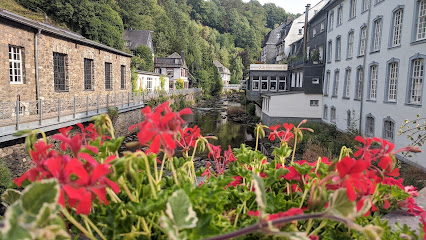
Fotografie-Forum der StädteRegion Aachen in Monschau
Explore captivating photographic art at the Fotografie-Forum in Monschau, showcasing international and regional talents in a historic setting with free admission for all visitors.
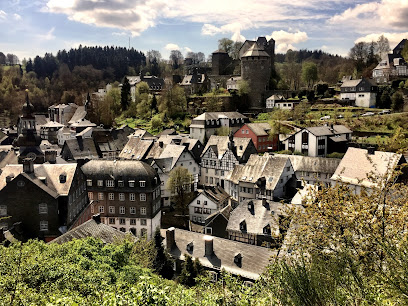
Burg Monschau
Explore the enchanting Burg Monschau, a medieval castle that offers stunning views and a glimpse into the rich history of the Eifel region.
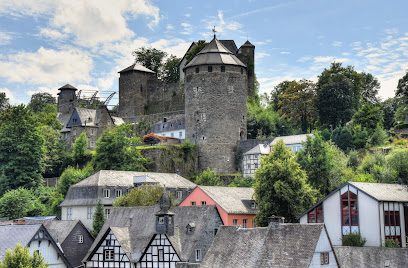
Panoramaweg
Discover breathtaking panoramic views of Monschau's historic townscape and the Eifel's natural beauty along the scenic Panoramaweg, a must-visit destination for every traveler.
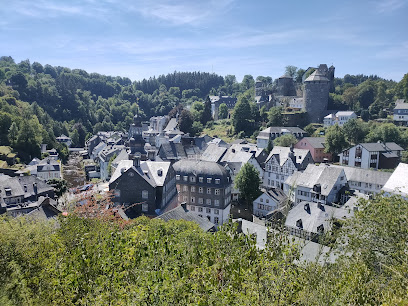
Glashütte Monschau
Discover the ancient art of glassblowing at Glashütte Monschau, where skilled artisans create stunning glassware using techniques passed down through generations in the heart of Monschau.
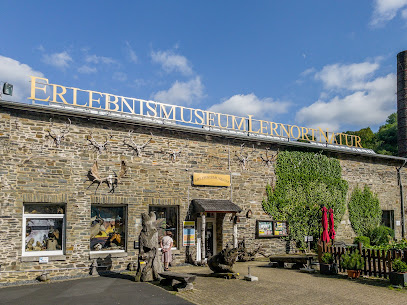
Kaiser Karls Bettstatt
Discover the legendary resting place of Charlemagne amidst the stunning natural beauty of the High Fens near Eupen, Belgium, offering a blend of history and outdoor adventure.
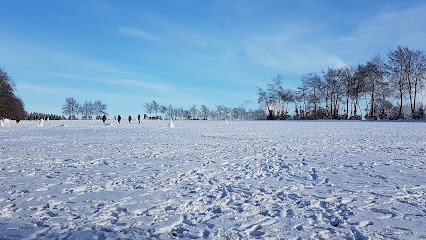
Aukloster
Discover the historical charm of Aukloster in Monschau, a beautifully preserved event venue blending heritage with modern elegance.
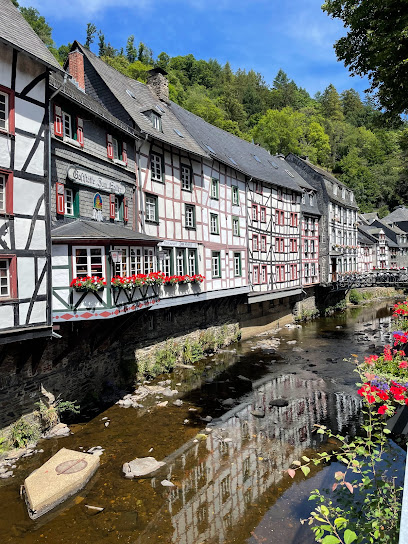
Haller-Ruine
Explore the historic Haller-Ruine in Monschau: Discover panoramic views and medieval history from this iconic tower ruin overlooking the picturesque Rur valley and town.
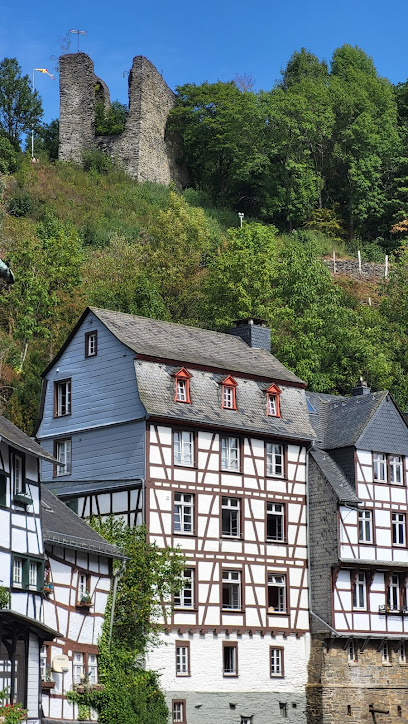
St. Lambertus Kalterherberg
Discover the majestic St. Lambertus Kalterherberg, the 'Eifel Cathedral,' a stunning neo-Romanesque basilica with a rich history and captivating architectural details in the heart of the Eifel.
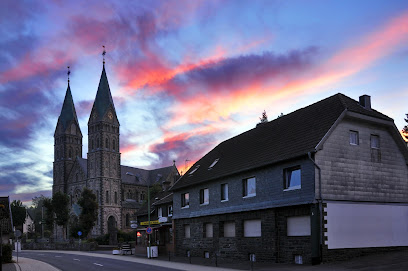
Evangelische Stadtkirche Monschau
Discover the Evangelische Stadtkirche Monschau, a historic landmark showcasing stunning Louis-seize architecture and a rich cultural heritage in the heart of Monschau's old town.
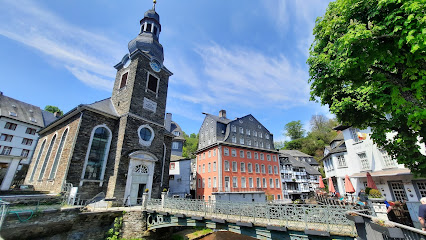
Alte Wassermühle Monschau
Discover the historic Alte Wassermühle in Monschau, a picturesque landmark offering a glimpse into the region's industrial past and the enduring charm of this enchanting town.
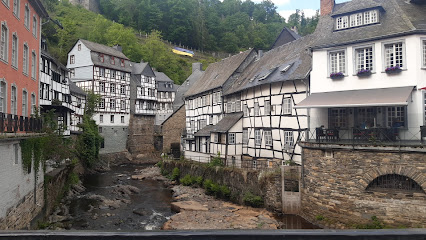
Unmissable attractions to see
Nationalpark Eifel
Explore the natural beauty of Nationalpark Eifel, a serene national park in Germany offering adventure, tranquility, and rich biodiversity for all nature enthusiasts.
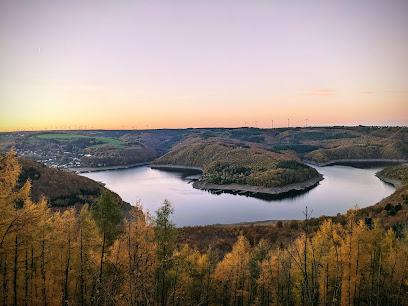
Fort Eben-Emael
Explore the historic Fort Eben-Emael, a World War II military fortress near Liège, Belgium, known for its impressive architecture and captivating history.
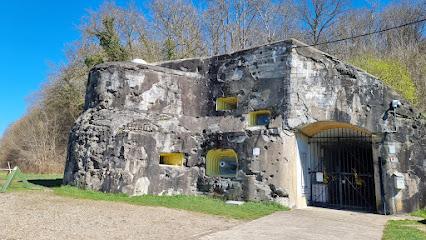
Wilder Kermeter natural adventure park
Experience the breathtaking landscapes and thrilling activities at Wilder Kermeter Natural Adventure Park, a national treasure in Germany's Eifel region.

Erlebnismuseum Lernort Natur
Explore the interactive exhibits at Erlebnismuseum Lernort Natur in Monschau – a perfect blend of education, fun, and nature.
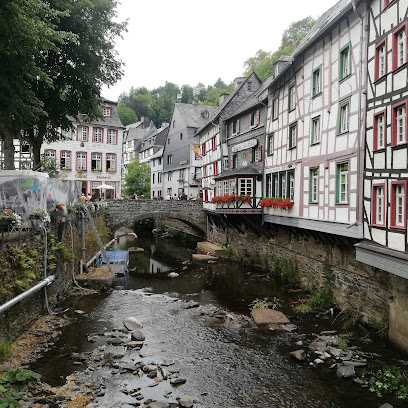
Oberes Rurtal mit den Felsbildungen der Ehrensteinley
Explore the enchanting Oberes Rurtal and its unique Ehrensteinley rock formations, a nature preserve perfect for adventurers and nature lovers alike.
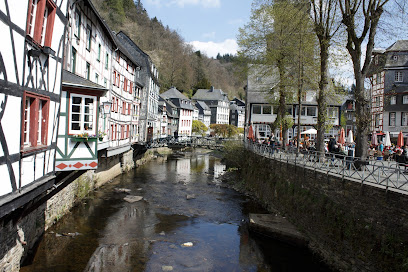
Mittleres Rurtal mit den Felsbildungen der Perdsley und Wiselsley
Discover the stunning Mittleres Rurtal with its breathtaking rock formations, perfect for hiking and immersing in nature's beauty.
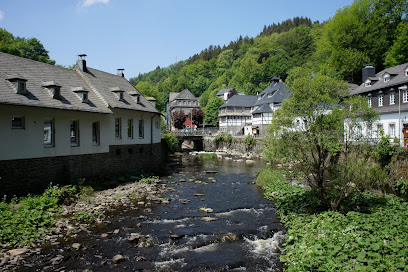
Perlenbach-Fuhrtsbachtal
Explore the breathtaking Perlenbach-Fuhrtsbachtal, a nature preserve in Monschau, filled with lush landscapes, scenic trails, and tranquil waters.
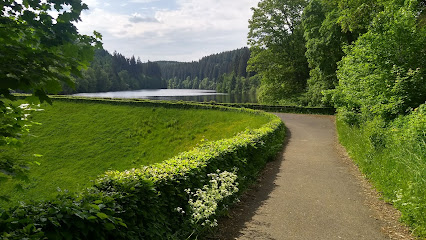
Vennhochfläche bei Mützenich
Discover the enchanting Vennhochfläche near Müntzenich, a nature preserve filled with scenic trails and breathtaking landscapes perfect for nature lovers.
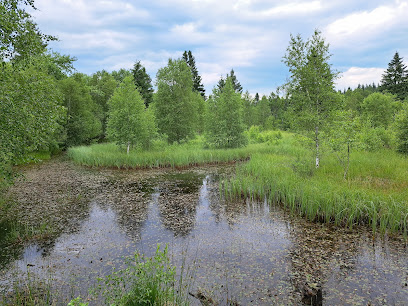
Panoramaweg
Explore the Panoramaweg in Monschau: A scenic walking trail offering breathtaking views and rich historical landmarks in a picturesque setting.
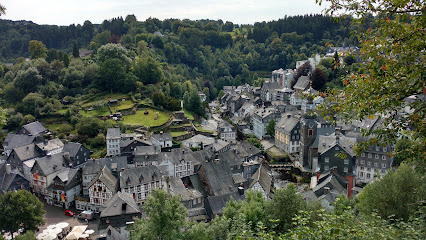
Kaiser Karls Bettstatt
Experience the allure of Kaiser Karls Bettstatt in Eupen, Belgium, where history meets natural beauty in a captivating tourist attraction.
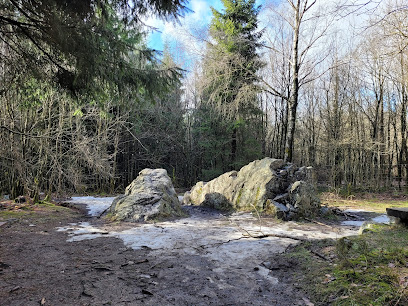
Kloster Reichenstein
Discover the serene beauty and rich history of Kloster Reichenstein, a captivating monastery in the heart of Monschau's picturesque Eifel region.
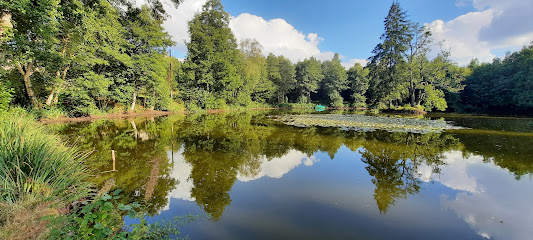
Monschauer Sandskulpturen GmbH
Explore the enchanting world of sand sculptures at Monschauer Sandskulpturen GmbH, where creativity and artistry meet in stunning displays.
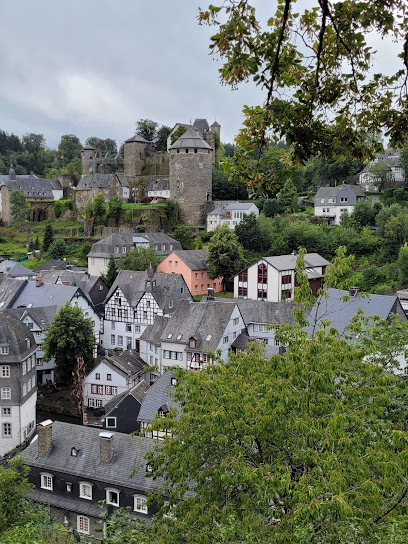
Aukloster
Explore Aukloster in Monschau, a historical attraction blending culture, architecture, and serene beauty. A must-visit for every traveler!
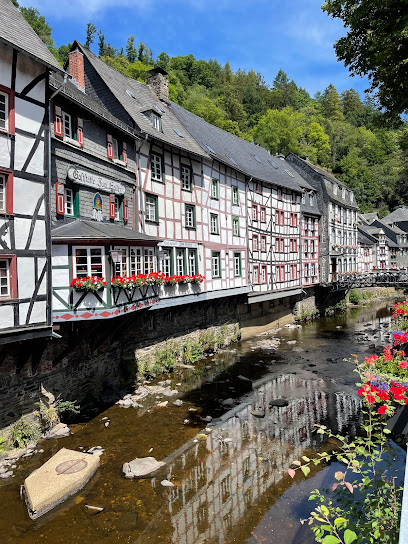
Haller-Ruine
Explore Haller-Ruine in Monschau, a stunning historical landmark offering breathtaking views and rich cultural heritage amidst scenic landscapes.
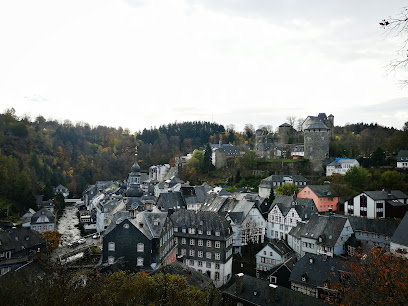
Kalltal
Explore Kalltal in Monschau: A serene nature preserve offering scenic trails, diverse wildlife, and breathtaking landscapes for an unforgettable outdoor experience.
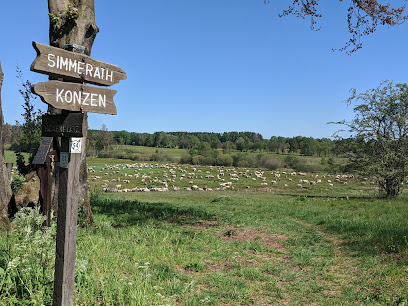
Essential places to dine
Zum Haller
Experience authentic German and Belgian cuisine at Zum Haller, a cozy gastropub in beautiful Monschau.
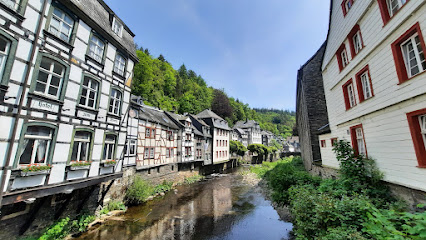
Hotel HORCHEM & BRAUKELLER Monschau
Discover traditional German flavors at Hotel HORCHEM & BRAUKELLER in scenic Monschau – a perfect blend of comfort and cuisine.
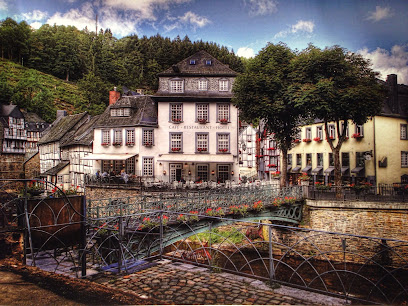
Venngasthof Zur Buche
Discover culinary excellence at Venngasthof Zur Buche in Monschau – where traditional flavors meet breathtaking landscapes.
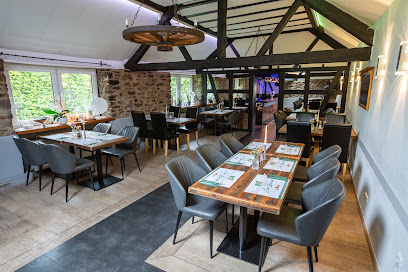
Restaurant Hüftgold
Experience authentic German cuisine at Restaurant Hüftgold in Monschau - a delightful stop for food lovers in this charming historic town.
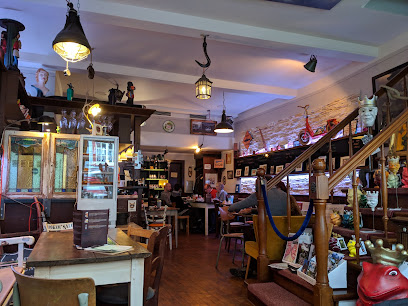
Restaurant Flosdorff
Experience authentic German cuisine at Restaurant Flosdorff in scenic Monschau - where tradition meets modern taste.

Alte MOLKEREI Höfen
Discover authentic German cuisine at Alte MOLKEREI Höfen in picturesque Monschau – where tradition meets taste.
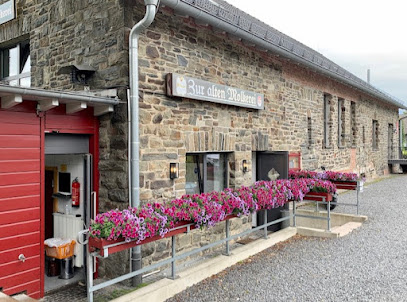
Lütticher Hof
Discover authentic German cuisine at Lütticher Hof, where cozy atmosphere meets delightful flavors in the heart of Monschau.
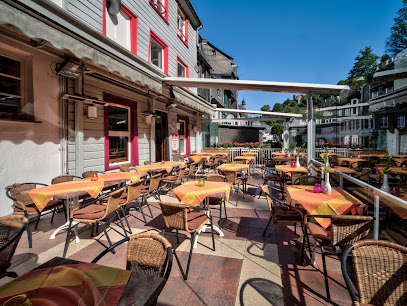
Eifelstübchen
Experience authentic German cuisine at Eifelstübchen in Monschau - where tradition meets taste in a cozy setting.
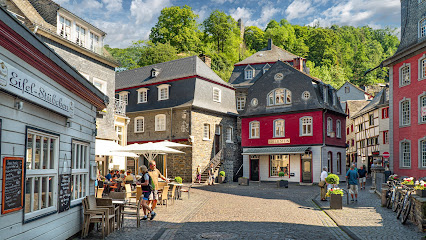
Haus Flora
Experience the delightful fusion of Croatian and German cuisine at Haus Flora in beautiful Monschau.
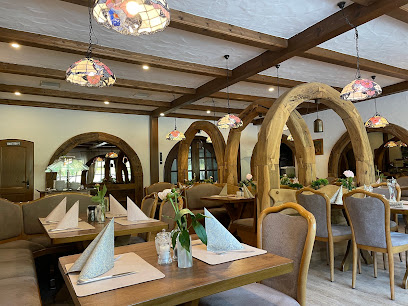
Café-Bistro Grünental
Experience culinary delights at Café-Bistro Grünental in Monschau, where local flavors meet stunning natural beauty.
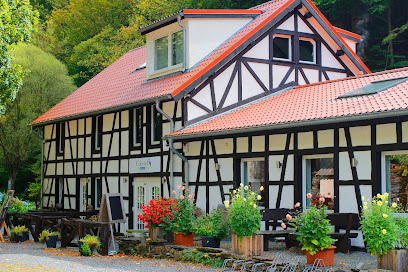
Hotel & Restaurant Alt Montjoie
Experience traditional German hospitality at Hotel & Restaurant Alt Montjoie in picturesque Monschau, offering cozy accommodations and delightful cuisine.
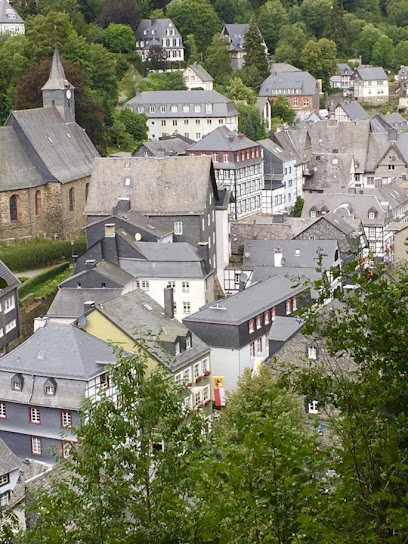
Alter Markt
Discover traditional German flavors at Alter Markt in Monschau - where every dish reflects authentic culinary heritage.
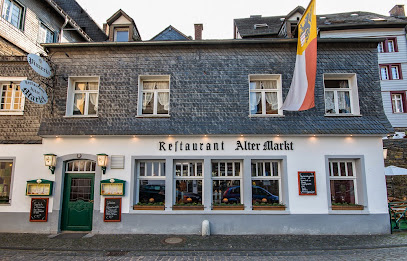
Schnabuleum
Discover the heart of German cuisine at Schnabuleum in Monschau – where tradition meets taste in a charming setting.
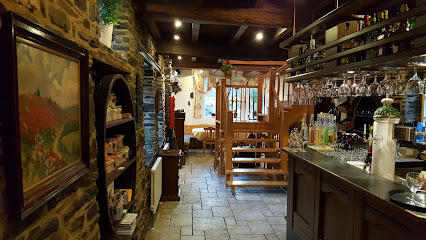
Restaurant Olive
Discover authentic Mediterranean and Italian cuisine at Restaurant Olive in scenic Monschau—where every meal is a delightful experience.
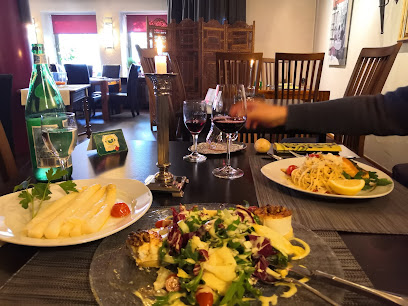
Restaurant Rur-Café
Discover authentic German cuisine at Rur-Café in scenic Monschau—where every meal is a delightful journey through local flavors.
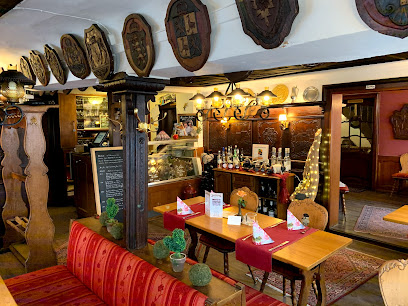
Markets, malls and hidden boutiques
Woolworth
Experience the charm of shopping at Woolworth in Monschau, where local flair meets convenience in a delightful department store.
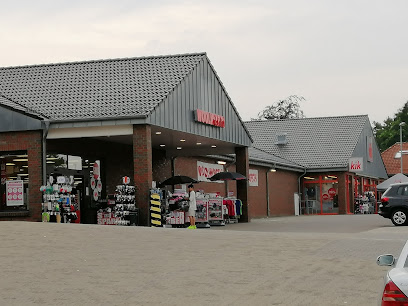
C&A
Explore C&A in Monschau for an extensive selection of stylish clothing at affordable prices, perfect for every traveler’s wardrobe.
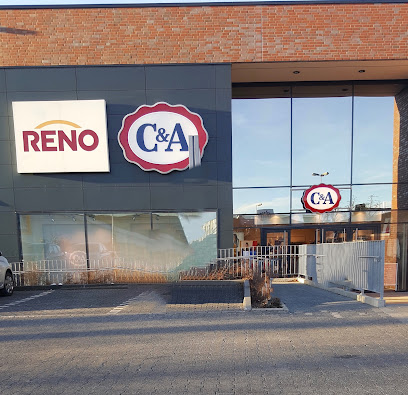
Edel & Stein Monschau
Discover unique gifts and local crafts at Edel & Stein Monschau, where every item reflects the charm of this picturesque German town.
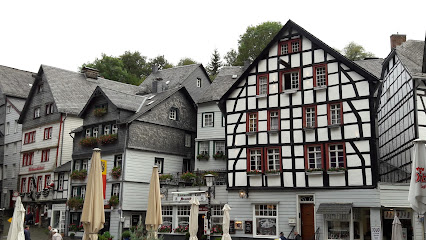
Alphons Lederwaren Inh. Alphons Vijgen
Discover exquisite handcrafted leather goods in the heart of Monschau at Alphons Lederwaren, where quality meets traditional craftsmanship.
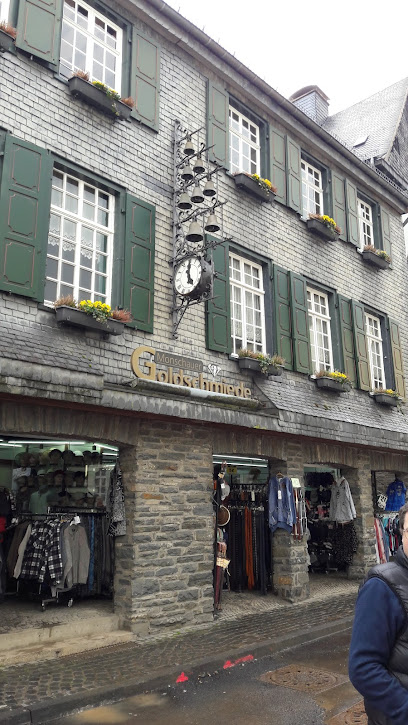
Angel's Share Monschau
Explore the finest spirits and local brews at Angel's Share in Monschau, a charming liquor store capturing the essence of German craftsmanship.
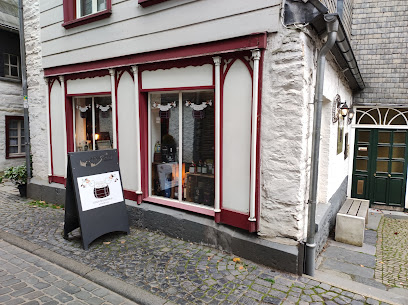
Monschauer allerlei im ehemaligem Handwerkermarkt. Chrissys-in, Geschenkartikel, Taschen, Ledergürtel, Geldbörsen, Altstadt
Explore the charm of Monschau at Chrissys-in, your go-to destination for unique gifts, handcrafted leather goods, and local artisan treasures.
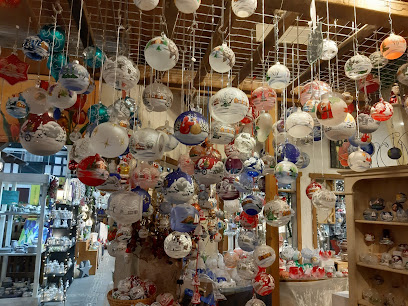
chateetea Monschau
Discover the essence of tea at Chateetea Monschau, where premium blends meet a cozy atmosphere in a picturesque setting.
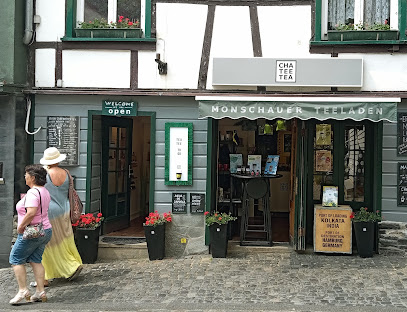
Fanartikel für Katzen- und Hundefreunde
Explore a charming gift shop in Monschau offering unique pet-themed merchandise, perfect for pet lovers and thoughtful gift-givers alike.
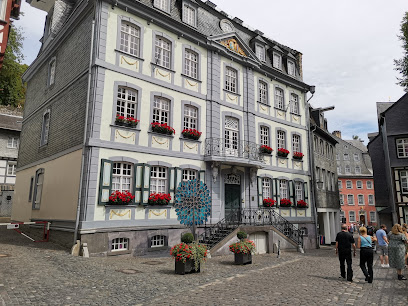
mond Concept Store
Experience the charm of Monschau at mond Concept Store, where local craftsmanship meets modern design in a delightful shopping experience.
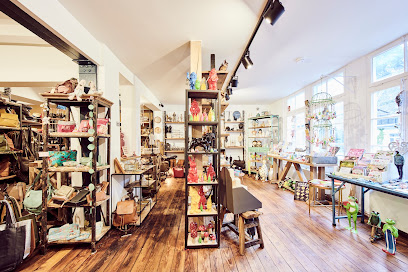
Le Cadeau
Discover unique gifts and local crafts at Le Cadeau, a charming store in the heart of Monschau, reflecting the rich culture of the region.
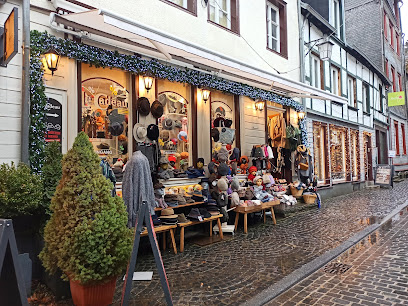
Sweets & Music
Discover the enchanting Sweets & Music, a whimsical toy store in Monschau, where toys and melodies create unforgettable memories.
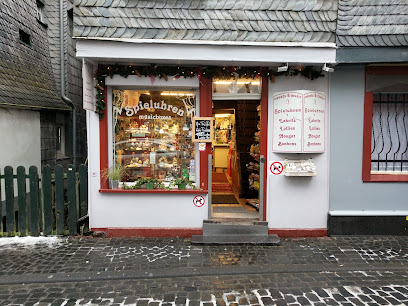
Mon Joie
Discover unique art and handcrafted gifts at Mon Joie, the charming gift shop in Monschau, showcasing local artistry and creative treasures.
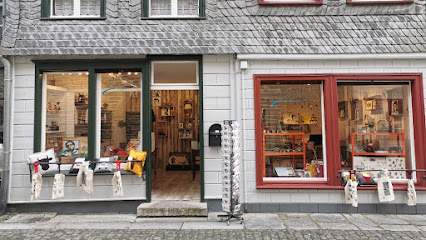
Ah und Oh Monschau
Explore the enchanting gift shop Ah und Oh Monschau, where unique treasures and local craftsmanship await in the heart of Germany's charming town.
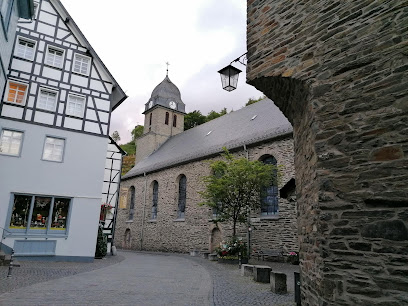
Mystery Mind & Magic
Explore the enchanting world of games and magic at Mystery Mind & Magic in Monschau, a must-visit destination for every gaming enthusiast.
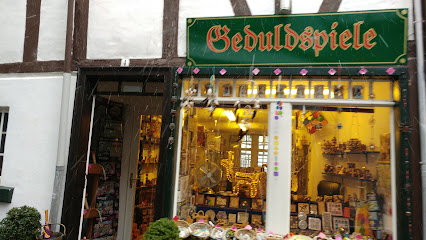
naturART Monschau
Explore unique fashion inspired by Monschau's cultural heritage at naturART Monschau, a top clothing store for discerning tourists.
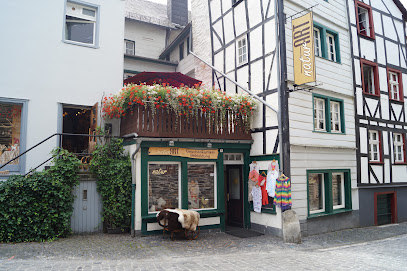
Essential bars & hidden hideouts
Zum Haller
Experience authentic German cuisine and a cozy atmosphere at Zum Haller, Monschau's premier gastropub, perfect for travelers seeking local flavors.
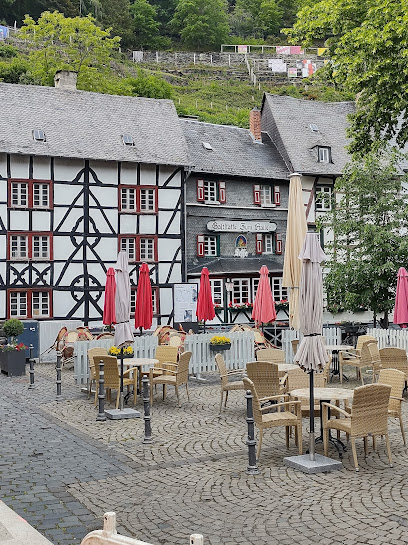
Hotel HORCHEM & BRAUKELLER Monschau
Experience the charm of Monschau at Hotel HORCHEM & BRAUKELLER, where delightful dining and vibrant socializing await you.
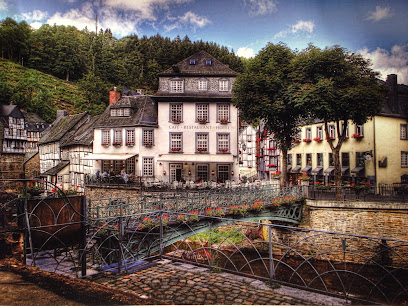
Venngasthof Zur Buche
Discover the enchanting atmosphere of Venngasthof Zur Buche, where local flavors meet the beauty of Monschau's landscapes.

Restaurant Flosdorff
Experience the charming ambiance and authentic flavors at Restaurant Flosdorff in picturesque Monschau, Germany.

Café Thelen
Experience the charm of Monschau at Café Thelen, where delightful coffee and delicious meals await in a cozy atmosphere.
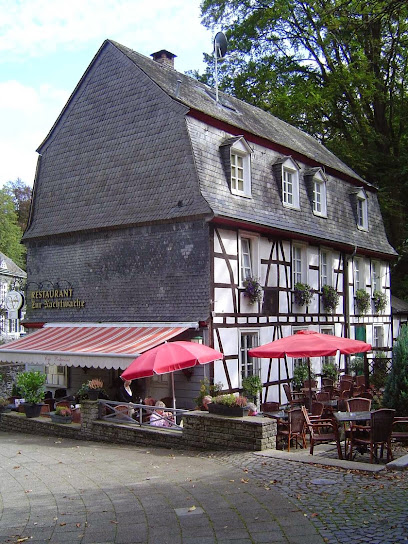
Lütticher Hof
Discover the delightful Lütticher Hof in Monschau, where cozy bistro vibes meet a charming beer garden for a memorable culinary experience.
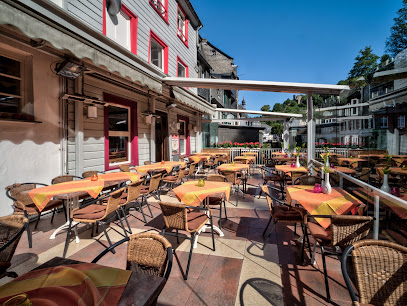
Haus Flora
Discover Haus Flora in Monschau, where Croatian and German cuisines meet in a delightful dining experience amidst scenic beauty.
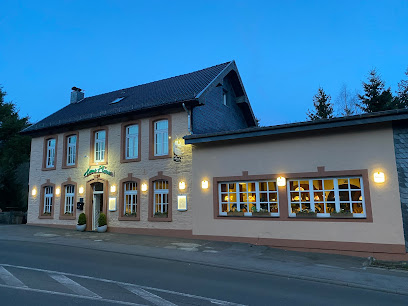
Café-Bistro Grünental
Discover the culinary delights of Café-Bistro Grünental, where local flavors meet a cozy atmosphere in the heart of Monschau.
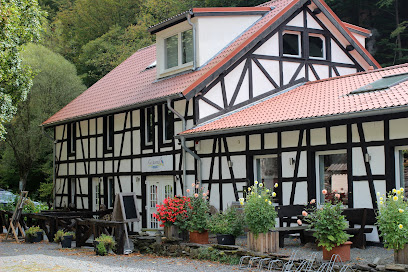
Bodega
Experience the authentic taste of Spain at Bodega, where every dish is a celebration of flavor and culture in the heart of Monschau.
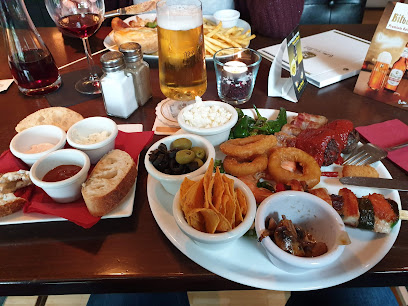
Restaurant Rur-Café
Experience the charm of Monschau with a delightful meal at Restaurant Rur-Café, where local flavors and warm ambiance meet.
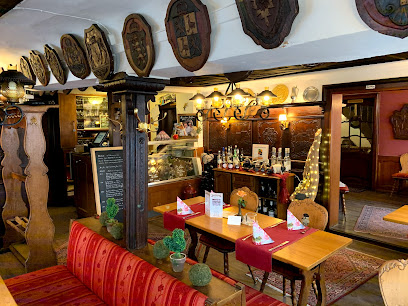
Hotel Restaurant Graf Rolshausen
Discover the perfect blend of comfort and authentic German cuisine in the heart of Monschau at Hotel Restaurant Graf Rolshausen.
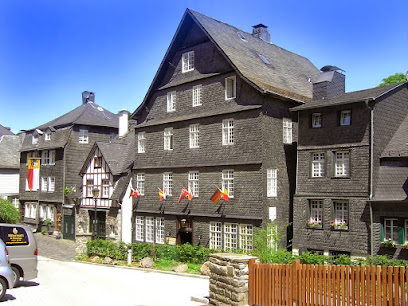
MON-Bistro
Savor the flavors of Germany at MON-Bistro, a charming eatery in Monschau blending tradition with modern culinary flair.
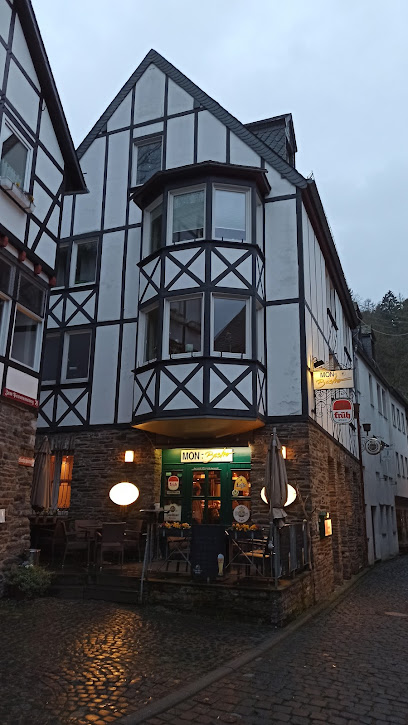
Gaststätte Zum Zien
Discover the authentic flavors of Germany at Gaststätte Zum Zien, a charming bar and restaurant in the picturesque town of Monschau.
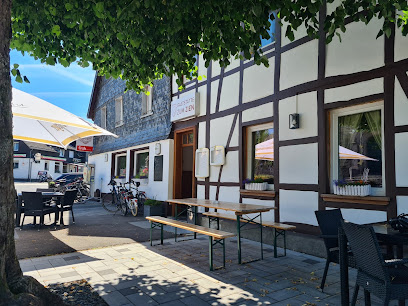
Alte Herrlichkeit
Experience the authentic flavors of German cuisine at Alte Herrlichkeit in Monschau, where tradition meets culinary excellence.
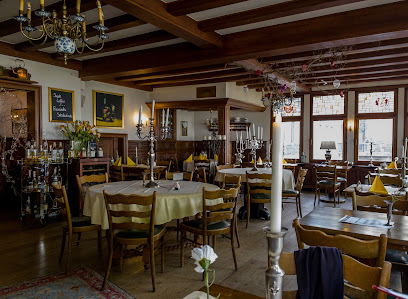
Local Phrases about Monschau
-
- HelloHallo
[HAH-loh] - GoodbyeAuf Wiedersehen
[owf VEE-der-zay-en] - YesJa
[yah] - NoNein
[nine] - Please/You're welcomeBitte
[BIT-teh] - Thank youDanke
[DAHN-keh] - Excuse me/SorryEntschuldigung
[ent-SHOOL-di-goong] - How are you?Wie geht es Ihnen?
[vee gayt es EE-nen] - Fine. And you?Gut. Und du?
[goot oont doo] - Do you speak English?Sprechen Sie Englisch?
[SHPRE-khen zee ENG-lish] - I don't understandIch verstehe nicht
[ikh fer-SHTAY-eh nikht]
- HelloHallo
-
- I'd like to see the menu, pleaseIch möchte bitte die Speisekarte sehen
[ikh merkh-tuh BIT-teh dee SHPY-suh-kahr-teh zay-en] - I don't eat meatIch esse kein Fleisch
[ikh EHS-se kine FLY-sh] - Cheers!Prost!
[prohst] - I would like to pay, pleaseIch möchte bitte bezahlen
[ikh merkh-tuh BIT-teh bez-AH-len]
- I'd like to see the menu, pleaseIch möchte bitte die Speisekarte sehen
-
- Help!Hilfe!
[HIL-fuh] - Go away!Gehen Sie weg!
[GAY-en zee veg] - Call the Police!Rufen Sie die Polizei!
[ROO-fen zee dee po-lee-TSY] - Call a doctor!Rufen Sie einen Arzt!
[ROO-fen zee I-nen artsht] - I'm lostIch habe mich verirrt
[ikh HAH-buh meesh feh-REERT] - I'm illIch bin krank
[ikh been krahngk]
- Help!Hilfe!
-
- I'd like to buy...Ich möchte ... kaufen
[ikh merkh-tuh ... KOW-fen] - I'm just lookingIch schaue nur
[ikh SHOW-eh noor] - How much is it?Wie viel kostet es?
[vee feel KOSS-tet es] - That's too expensiveDas ist zu teuer
[dahs ist tsoo TOO-er] - Can you lower the price?Können Sie den Preis senken?
[KERN-en zee den price ZEN-ken]
- I'd like to buy...Ich möchte ... kaufen
-
- What time is it?Wie spät ist es?
[vee SHPAYT ist es] - It's one o'clockEs ist ein Uhr
[es ist iyn oor] - Half past (10)Halb zehn
[hahlp tsayn] - MorningMorgen
[MOR-gen] - AfternoonNachmittag
[NAKH-mit-tahg] - EveningAbend
[AH-bent] - YesterdayGestern
[geh-stern] - TodayHeute
[HOY-teh] - TomorrowMorgen
[MOR-gen] - 1Eins
[ines] - 2Zwei
[tsvai] - 3Drei
[dry] - 4Vier
[feer] - 5Fünf
[foonf] - 6Sechs
[zeks] - 7Sieben
[zee-ben] - 8Acht
[ahkt] - 9Neun
[noyn] - 10Zehn
[tsayn]
- What time is it?Wie spät ist es?
-
- Where's a/the...?Wo ist ein/der...?
[voh ist iyn/der] - What's the address?Was ist die Adresse?
[vahs ist dee ah-DREH-suh] - Can you show me (on the map)?Können Sie mir (auf der Karte) zeigen?
[KERN-en zee meer (ouf der KAR-teh) tsai-gen] - When's the next (bus)?Wann kommt der nächste (Bus)?
[vahn kohmt der NOKS-teh (boos)] - A ticket (to ....)Eine Fahrkarte (nach ...)
[I-nuh FAR-kahr-teh (nakh)]
- Where's a/the...?Wo ist ein/der...?
History of Monschau
-
Monschau, located in the Eifel region of Germany, was first mentioned in historical records in the 12th century. The town's strategic position along the Rur River made it an important site for trade and defense. The construction of the Monschau Castle, which began in the 13th century, marked the town's significance during medieval times.
-
During the 18th century, Monschau experienced a period of economic prosperity due to its flourishing textile industry. The town became renowned for its high-quality cloth, particularly Monschauer Tuch, which was exported across Europe. The economic boom led to the construction of many of the beautiful half-timbered houses that still stand today.
-
Monschau, like much of Europe, was affected by the Napoleonic Wars in the early 19th century. The town was occupied by French troops, and many of its traditional structures and systems were influenced by the French administrative reforms. This period brought about significant changes in the town's governance and social structure.
-
Monschau found itself in the thick of conflict during both World Wars. In World War I, the town was near the western front lines, and in World War II, it was the scene of intense fighting during the Battle of the Bulge. Despite the destruction, Monschau managed to preserve much of its historical architecture, providing a window into its resilient spirit.
-
After the devastation of World War II, Monschau embarked on a path of reconstruction and revitalization. By the mid-20th century, the town recognized the potential of its historical charm and began promoting tourism. Today, Monschau is a popular destination for visitors who are drawn to its picturesque streets, well-preserved buildings, and rich history.
-
Monschau is known for its vibrant cultural scene, including the annual Monschau Klassik, a classical music festival held in the town's historic center. The Monschau Christmas Market is another highlight, attracting thousands of visitors with its festive atmosphere, artisanal crafts, and traditional German holiday foods.
Monschau Essentials
-
Monschau is located in the Eifel region of North Rhine-Westphalia, Germany. The nearest major city is Aachen, approximately 30 kilometers away. The closest international airport is Maastricht Aachen Airport in the Netherlands, about 80 kilometers from Monschau. From Aachen, you can take a regional bus (line 66) directly to Monschau, which takes around 1.5 hours. Alternatively, you can rent a car and drive through the picturesque Eifel National Park.
-
Monschau is compact and best explored on foot. The town's narrow, cobblestone streets are pedestrian-friendly. For exploring the surrounding areas, regional buses connect Monschau with nearby villages and towns. Renting a bicycle is also a popular option for tourists. There are several car rental services available in Aachen if you prefer to drive.
-
The official currency in Germany is the Euro (EUR). Most hotels, restaurants, and shops in Monschau accept major credit cards. However, it is advisable to carry some cash for smaller establishments and local markets. ATMs are available throughout Monschau for convenient cash withdrawals.
-
Monschau is generally a very safe destination for tourists. There are no specific areas with high crime rates targeting tourists. However, as in any travel destination, it is sensible to take standard precautions: keep an eye on your belongings, avoid poorly lit areas at night, and be aware of your surroundings.
-
In case of emergency, dial 112 for immediate assistance. Monschau has a local police station and medical facilities. It is advisable to have travel insurance that covers medical emergencies. For minor health issues, there are pharmacies in Monschau where you can purchase over-the-counter medications.
-
Fashion: Do wear comfortable walking shoes suitable for cobblestone streets. Don't wear overly casual clothing in more formal restaurants. Religion: Do respect local religious customs and dress modestly when visiting churches. Public Transport: Do validate your bus ticket before boarding. Don't speak loudly or disturb other passengers. Greetings: Do greet people with a polite 'Guten Tag' or 'Hallo'. A handshake is customary. Eating & Drinking: Do try the local specialties like mustard and printen cookies. Don't rush through meals; Germans appreciate leisurely dining.
-
To experience Monschau like a local, visit the weekly market held on Wednesdays and Saturdays where you can buy fresh produce and local goods. Engage with locals in small talk; they are friendly and often willing to share stories about the town's history. Don't miss the Monschau Christmas Market if you visit during the holiday season. For a unique experience, take a stroll along the Rur River and explore the surrounding Eifel National Park.
Trending Landmarks in Monschau
-
Monschau historic old town
-
Erlebnismuseum Lernort Natur
-
Perlenbach-Fuhrtsbachtal
-
Foundation Scheibler Museum Rotes Haus Monschau
-
Alte Herrlichkeit
-
Fotografie-Forum der StädteRegion Aachen in Monschau
-
Burg Monschau
-
Panoramaweg
-
Glashütte Monschau
-
Kaiser Karls Bettstatt
-
Aukloster
-
Haller-Ruine
-
St. Lambertus Kalterherberg
-
Evangelische Stadtkirche Monschau
-
Alte Wassermühle Monschau
Nearby Cities to Monschau
-
Things To Do in Spa
-
Things To Do in Liege
-
Things To Do in Maastricht
-
Things To Do in Clervaux
-
Things To Do in Durbuy
-
Things To Do in La Roche-en-Ardenne
-
Things To Do in Bonn
-
Things To Do in Cologne
-
Things To Do in Genk
-
Things To Do in Wiltz
-
Things To Do in Vianden
-
Things To Do in Hasselt
-
Things To Do in Diekirch
-
Things To Do in Dusseldorf
-
Things To Do in Echternach










